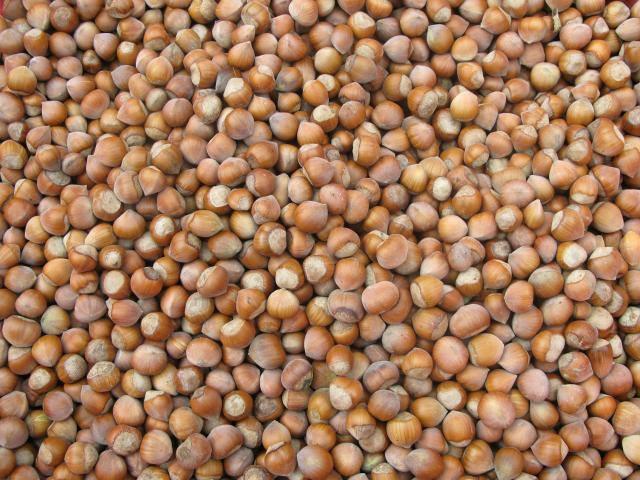With the 2020/2021 hazelnut season in full swing in Georgia, farmers have already begun preparations for the new season. EastFruit talked about the current quality of hazelnuts, prices, challenges facing producers, and the potential of the industry with George Todua, the executive director of the Georgian Hazelnut Growers Association (GHGA).

– How do you assess the quality of Georgian hazelnuts this season?
The quality of Georgian hazelnuts is significantly better than last season. This was also reflected in the level of output. If last season this figure was 38-39% on average, then this year it increased to 42%. This became possible thanks to government measures, including the fight against the marble bug and other hazelnut diseases. Also, it was the best care of hazelnut orchards by the farmers themselves, in which we try to help them as much as possible, and the support of donors. The better quality has led to the growth of the authority of the Georgian hazelnuts in the world market and, accordingly, the demand. The official information as of February 9th, Georgia has already exported 15,600 tons of hazelnuts worth $81.2 million this season. These figures, respectively, are 50% and 52% higher than the data one year ago. Exports are still continuing at an active pace. In general, our forecast this season is that the exports of hazelnuts will be at the level of 50,000 – 55,000 tons (in terms of raw nuts). We are confident that the country’s hazelnut industry still has even greater potential. Our Association thinks Georgia will actually increase the volume of annual exports of hazelnuts to 100,000 tons over the next three years. Naturally, this is subject to the efforts of all interested parties, and, first and foremost, the farmers themselves. We set a goal to achieve an average core yield of 45% over the specified period. This means that if hazelnut kernels on the market cost, for example, 20 lari/kg ($6.10/kg), then for 1 kg of unpeeled, nut farmers will receive 9 lari ($2.70) on average.
– What are the current prices for hazelnuts in Georgia?
Prices for unpeeled nuts, depending on the quality and the level of kernel yield, now range from 7-9 lari/kg ($2.10-$2.80/kg). The cost of hazelnut kernels is at the level of 19.5-20 lari ($5.90-$6.10).
– For a number of years, GHGA has been implementing a development program for the Georgian hazelnut industry and knows in detail about its state. What are the main challenges facing producers at the moment, and can we say that the problem of the marble bug is no longer relevant for them?
The marble bug problem has been minimized due to the measures carried out by the state and local farmers for several years, but it has not been removed from the agenda. If we weaken the efforts in the country to combat the marble bug, then soon we may find ourselves in the same deplorable situation as we were in 2016. The Association recently held a meeting at the Ministry of Environment and Agriculture, and we were told that government programs in support of farmers, including the fight against the marble bug, will continue this year. In turn, we will try our best to ensure that farmers do all the proper work in the orchards and in due time, this applies, among other things, to the fight against various pests and diseases. Today, the process of cutting and shaping hazelnuts, as well as fertilization, is underway in the orchards. From the end of March, the chemical treatment of orchards should already begin to protect against marble bugs and other pests.
Read also: Nut business: 2020 market summary for walnuts, almonds, hazelnuts, pistachios and other nuts
– What are the Association’s priorities for this year?
Our main priority this year will be to actively involve in our ranks smallholder farmers – owners of hazelnut orchards with an area of about 0.5 hectares. These farmers make up a significant part of the hazelnut producers in Georgia, but many of whom have little motivation for a better result. The traditional yield indicator in such small orchards is 300-500 kg per 0.5 hectares. Meanwhile, among the members of our Association, there are also such successful farmers who already harvest 1.5 tons of hazelnuts from their 0.5 hectares.
Naturally, we will continue actively having meetings with farmers, having events, and rendering services to the members of the Association. At the moment, GHGA unites more than 25,000 farmers who own more than 30,000 hectares of orchards in almost all regions that are suppliers of Georgian hazelnuts to the market – Samegrelo, Guria, Imereti, and Adjara in Western Georgia and Kakheti in Eastern Georgia. This year we intend to replenish our ranks with 10,000 more farmers to strengthen our presence in Adjara, Guria, and Kakheti. I would like to note that our partner in Kakheti is the Georgian office of the FAO, which helped us open our representative office there.
We will also work to further develop the infrastructure for drying and storing hazelnuts in Georgia, which contributes to the creation of added value. Today, there are six such centres in the country: three in Samegrelo and three in Kakheti. We hope that donor support in this direction will continue. And, of course, we will continue to implement, at the request of producers, projects of hazelnut plantations on a turnkey basis.
***
Since 2013, the Georgian Hazelnut Growers Association strives to increase the knowledge of farmers and to contribute to the improvement of hazelnut quality and the growth of its production. All members of the Association, without exception, participate in the Hazelnut Industry Development Program implemented by GHGA in cooperation with the government and donors. Farmers, united in special groups of 10-12 people with one leader in each of the groups are regularly consulted on tasks such as caring of hazelnut orchards, distributing more than 1,500 highly efficient devices for chemical treatment of orchards at no charge, providing funds on preferential terms plant protection, etc.
The Hazelnut Drying and Storing Centers operating in Georgia were opened with the support of the Georgia Hazelnut Sector Development Project (G-HIP) implemented by the United States Agency for International Development (USAID), Ferrero, Cultivating New Frontiers in Agriculture (CNFA), and the Georgian Hazelnut Growers Association as well as the state.
The total area of hazelnut orchards in Georgia, including new ones, is more than 70,000 hectares. Both local varieties of hazelnuts (mainly Anakliuri and Gavazura) and Italian ones are grown in the country.
The use of the site materials is free if there is a direct and open for search engines hyperlink to a specific publication of the East-Fruit.com website.




